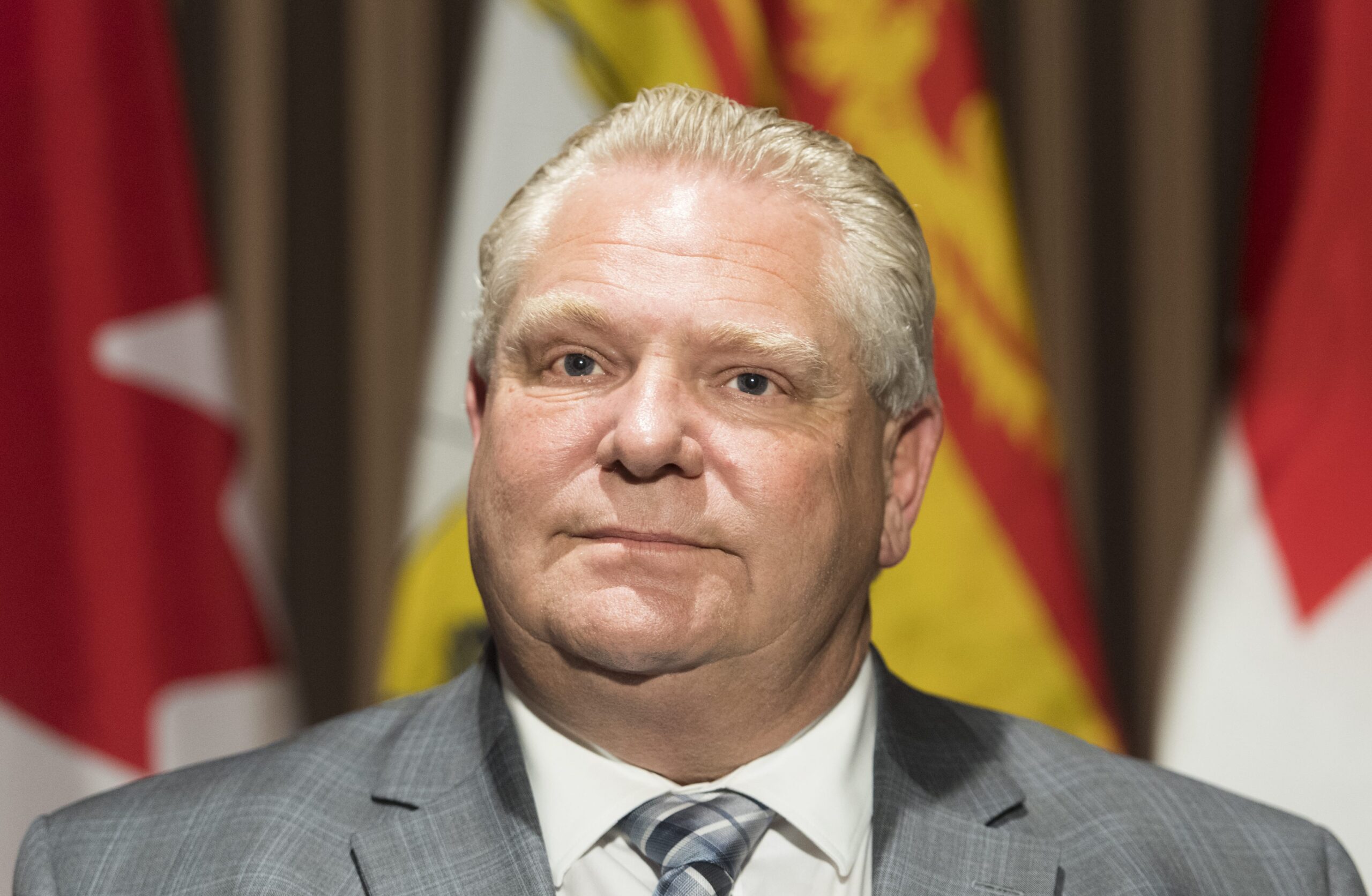A legal ménage of gays, gag orders and government gaslighting may disclose the future of the Doug Ford government’s troubling rollback of Ontario’s sex-ed curriculum.
Last week, the Divisional Court heard applications filed by the Elementary Teachers Federation of Ontario (ETFO) and the Canadian Civil Liberties Association (CCLA), which claim that the Ford government infringed Charter rights to expression, security of the person and equality by rolling back the Health and Physical Education Curriculum by more than 20 years.
The resurrected 1998 curriculum was written before same-sex marriage was legal or the sea-change in LGBTQ2 rights that followed. It contains no references to LGBTQ2 relationships, gender identity, or concepts such as consent — topics that were incorporated into the 2015 curriculum after an extensive consultation with parents and teachers. It is definitively heteronormative. Without doubt, the erasure of LGBTQ2 identities, relationships and family types appeals directly to Ford’s social conservative following.
Ford has long characterized the 2015 curriculum as inappropriate. During the Ontario Progressive Conservative leadership race, he branded it as “Liberal ideology” — allowing him to find common cause with rival Tanya Granic Allen, who says she finds same-sex marriage vomit-inducing. Once elected, Ford made a show of scrapping the 2015 curriculum until a more “age-appropriate” version could be developed based on proper consultation with parents. The government simultaneously launched a “snitch line” website for parents to relay complaints about their children’s teachers who they felt were not teaching to the appropriate standards. Ford said his government “will not tolerate anybody using our children as pawns for grandstanding and political games” — tough talk meant to cast a chill over how teachers carry out their lessons. Now that the province’s consultation has shown support for modern sex ed, Ford claims that “certain groups” skewed the results.
Ford’s political strategy has been obvious: taking a hatchet to the 2015 curriculum through the rollback and, failing that, by threatening educators. But this approach now puts the government’s legal strategy at odds with its actual behaviour.
All students need the benefit of proactive, compulsory and morally neutral education that affirms a range of orientations and identities
In court, for example, the government’s lawyers argued that the missing content from the 2018 curriculum can still be taught — that LGBTQ2 content is incorporated by reference somehow. Counsel insisted that the 2018 curriculum — or more accurately, the reinstated 1998 curriculum — was simply written at “a higher level of generality” and that teachers are still required to be inclusive in their teaching. The government’s lawyers also said that the 2015 curriculum could be used as a resource by teachers. But illuminatingly, they declined to state for the record that the 2015 curriculum could actually be used as curriculum.
The government’s position in court does not withstand scrutiny when compared to the reasons Ford’s administration provided for the repeal last summer. The purpose of rolling back the 2015 curriculum was to remove objectionable content that was not “age appropriate,” and to send the message that such content is no longer permitted. How could any other conclusion be reached when the government went so far as to launch a snitch line to report on teachers who didn’t abide?
And if teachers can use the 2015 curriculum when delivering lessons now, it is unclear how that will work — or if it will happen at all. The reality of making content optional is that some educators will simply not use it. Elective material can be easily omitted if it doesn’t align with their personal convictions, at the direction of a conservative school board or to avoid confrontations with parents.
Others may not draw from optional content because they sincerely will not know that it is responsive to their students’ needs. As ETFO noted, it is one thing for a teacher to see a child experience difficulty and reach out, but LGBTQ2 students or others at risk may not readily present as such, meaning that basic inclusion policies will not protect them. All students need the benefit of proactive, compulsory and morally neutral education that affirms a range of orientations and identities.
The government’s failure to understand this reflects the narrow scope of LGBTQ2 inclusion that pervades much of conservative Canada — one animated by tolerance instead of participation. Inclusion is framed as an anti-harassment tool to address bullying, not the normalization of LGBTQ2 relationships, families or parents. In 2018, sexual health education should actively, openly promote positive images of LGBTQ2 people, not simply footnote us as outliers or flawed sinners merely undeserving of violence and harassment.
Whether the law has sufficient tools to reconcile hurtful populist rhetoric with its resulting, deceptively bland policy remains to be seen
Although the decision to erase LGBTQ2 content from the curriculum is blatantly inconsistent with the equity and inclusion requirements of the Education Act, the Ontario Human Rights Code and school board policies, the government’s lawyers suggest that these legal instruments will protect students where the curriculum falls silent. They further pointed to guides published by various school boards in response to the curriculum rollback as evidence that topics like gender identity will continue to be taught, even though these statements have been issued in protest of the rollback and the 2018 curriculum’s deficiencies.
Accepting the minister’s position requires the court to endorse a number of bare inconsistencies. Whether the law has sufficient tools to reconcile hurtful populist rhetoric with its resulting, deceptively bland policy remains to be seen. While there is generally expert consensus on the importance of modern, inclusive sex-ed curriculum for young people’s safety and healthy development, the court may have no ability to force the government to act accordingly.
Indeed, the three-judge panel is tasked with navigating a number of challenging legal dilemmas which strike at the fulcrum of the executive-judicial divide: executive discretion, the application of the Charter to administrative decisions and the availability of judicial remedies where very specific policy outcomes are desired. They must also determine the degree of context that can be inferred from the words of brash politicians in the era of Trump.
Judgment has been reserved for now, but the arguments presented by counsel are already an indictment of a government willing to embolden homophobia and transphobia and marginalize LGBTQ2 people, while denying all responsibility and intention in open court.


 Why you can trust Xtra
Why you can trust Xtra


